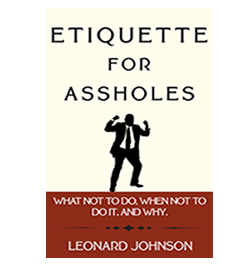At the end of last year, I set a personal goal: finally publish Spinal Trauma: Ten More Twisted Tales. These stories had been sitting in my files for years, waiting for the right time to be compiled into a book. With the new year approaching, I decided that this was the moment. I had a hard deadline in my mind, and I was determined to meet it.
And I did.
The book was uploaded, published, and available for readers to purchase. I checked that goal off my list and felt an initial wave of accomplishment. Then, I actually sat down and read what I had published.
What I found was disappointing.
In my rush to meet the deadline, I had completely overlooked the quality of my work. The book was riddled with misspellings, formatting errors, and sloppy mistakes that should have never made it past the editing stage. I had spent years crafting these stories, yet I had given myself only a fraction of that time to make sure they were polished and presentable.
The excitement of getting it done had outweighed the necessity of getting it right.
I quickly pulled the book down, embarrassed that I had allowed it to go live in that condition. It took weeks to go back through, make the necessary revisions, and ensure that the book met the standards I should have insisted on from the start.
It was a hard lesson, but an important one: self-imposed deadlines mean nothing if the quality suffers.
The Illusion of Deadlines
When you’re working on a personal project—whether it’s writing a book, launching a product, or finishing any kind of creative work—it’s easy to set a firm deadline and convince yourself that it must be done by then. You might feel pressure to finish quickly, to meet an arbitrary date, or to prove something to yourself. But if rushing leads to poor quality, then that deadline does more harm than good.
Sure, deadlines are necessary in many aspects of life. But when it comes to creative work, meeting a date means nothing if the final product isn’t something you’re proud of.
Slowing Down Leads to Better Work
After fixing the errors in Spinal Trauma, I re-released the eBook and finalized the paperback version. This time, I took my time. I reviewed every word, formatted everything properly, and ensured it was the book I wanted to present to the world—not just one I hurried to finish.
The difference was night and day.
Rushing robbed me of that satisfaction the first time around. But taking my time allowed me to produce something I was genuinely proud of.
Lessons Learned
If I could go back, I’d tell myself to take a breath. To push the deadline back a few weeks or months if needed. To focus on quality first.
So if you’re working on something important—whether it’s a book, a business venture, or a personal project—don’t let an arbitrary deadline trick you into cutting corners. The world won’t end if you take a little longer to get it right.
I learned that the hard way. Hopefully, you won’t have to.


 My name is Leonard H. Johnson. I have held numerous titles over the years, which include, butcher, roofer, auto-mechanic, author, application developer. I love fishing, Xbox, Diablo and my family. I've managed to earn my MS, MBA, & PMP. I have +6 to sarcasm and a level 12 mastery in being a smart ass.
My name is Leonard H. Johnson. I have held numerous titles over the years, which include, butcher, roofer, auto-mechanic, author, application developer. I love fishing, Xbox, Diablo and my family. I've managed to earn my MS, MBA, & PMP. I have +6 to sarcasm and a level 12 mastery in being a smart ass.





